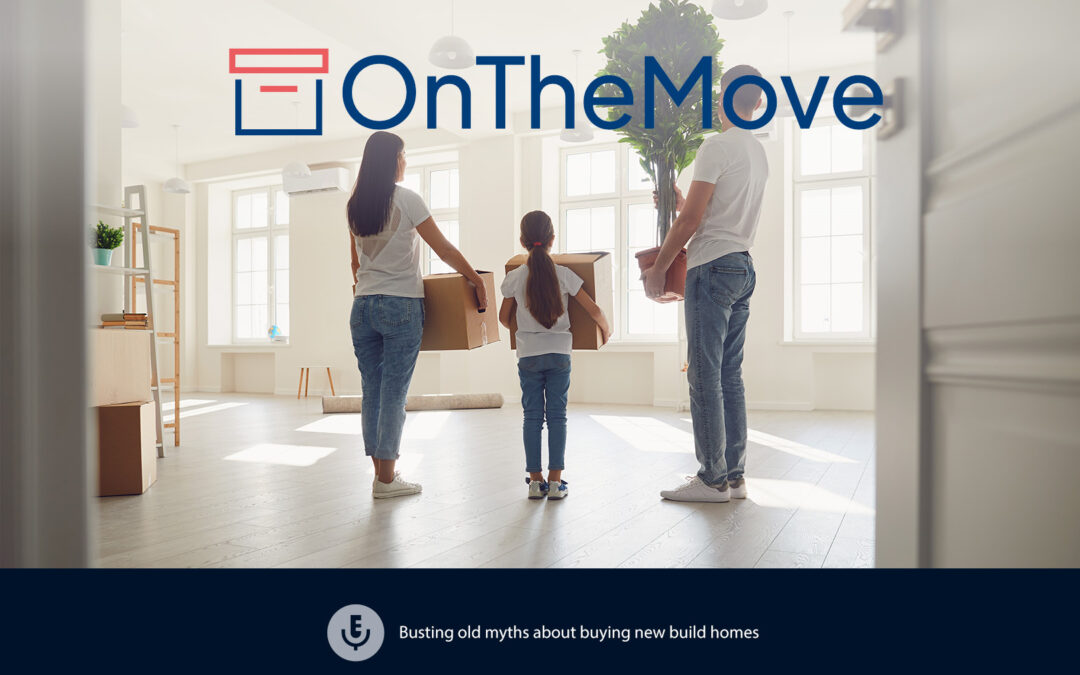There are ways to make buying your first home easier. Here, OnTheMarket.com and the Money Advice Service explores some of them.
Saving money for your deposit
Before you start looking at properties you’ll need to start saving for a deposit. Generally, you need to try to save at least 5% to 20% of the cost of the home you’d like. So if you want to buy a home costing £150,000, you’ll need to save at least £7,500. Saving more than 5% will make it easier for you to apply for a wider range of mortgages.
Once you know the amount of deposit you’ll need, make a plan to reach this goal. Be realistic about how much you can afford. Regular saving is more effective than relying on irregular one-off sums. How long it will take depends on how much you can afford to set aside each month.
Check out the Money Advice Service’s step-by-step guide to saving money for a deposit.
Help to Buy
Do you have at least a 5% deposit? The government’s Help to Buy scheme makes it possible to buy a new or existing home even if you’ve only got a small deposit. With Help to Buy there are two options available: equity loans and mortgage guarantees.
Equity loans are only available if you are buying a newly built home. You can borrow 20% of the purchase price interest-free for the first five years as long as you have a 5% deposit.
Mortgage guarantees are available for new and old properties across the UK. The government will cover part of any losses your lender may sustain if the mortgage is not repaid.
There are limits on the cost of the property you can buy using both of these schemes, which differ across the UK. Read more in the Money Advice Service’s guide to Help to Buy.
Shared ownership
Shared ownership is a cross between renting and buying, aimed mainly at first-time buyers. You buy a share of a home from the landlord and rent the part you don’t own at a reduced rate. The landlord in this case is usually your local council or housing association.
Shared ownership schemes are designed to help people who don’t earn enough to buy a home outright. People aged 55 and over and people with long-term disabilities can also apply.
You will have to take out a mortgage to pay for your share, which is between 25% and 75% of the home’s value. You then pay a reduced rent on the share you don’t own. You have the option later on to buy a bigger share of the property – up to 100% – when you can afford to.
Right to Buy/Right to Acquire
Right to Buy lets council tenants who qualify buy their council home at a reduced rate. The size of the discount varies depending on where you live and the type of property you want to buy.
Tenants normally need to have rented from their local council or housing association for three years before they qualify. The three years can be non-consecutive.
Right to Acquire is a scheme offered in England and Wales for housing association tenants who don’t qualify for Right to Buy. The discounts are slightly smaller.
The Money Advice Service has more information on ‘Right to Buy’ and ‘Right to Acquire’.
Guarantor mortgage
If you’re lucky enough to have parents, relatives or friends who can help, you may be able to get a guarantor mortgage. This means that they’re responsible for covering your mortgage repayments if you’re unable to meet them.
These kind of mortgages come with risks, though. The guarantor is liable for the loan if you default and start missing payments. This could affect both of your credit scores, making it harder to borrow in future.
This is one area where it helps to talk to a professional. A mortgage broker will be able to tell you which lenders offer guarantor mortgages and the implications of becoming a guarantor.
Buying with friends or family members
Buying with a friend of family member is becoming more popular as UK house prices continue to soar. The benefits of doing this include sharing the deposit, mortgage repayments and maintenance costs. You can also consider a larger mortgage than you would otherwise be able to.
Sharing ownership does come with potential risks, though. There could be financial complications if one party pays more of the deposit than the other. There is also the possibility of disputes further down the road.
Both parties need to think hard about the pros and cons before entering into this arrangement. But if care is taken to ensure that all parties are happy and agreements are watertight, you’ll have an investment that increases in value.
This article is provided by the Money Advice Service. Read the full first-time buyer guide by the Money Advice Service here.
Content provided by OnTheMarket.com is for information purposes only. Independent and professional advice should be taken before buying, selling, letting or renting property, or buying financial products.
See www.onthemarket.com/newandexclusive. Agents specify exclusivity and are committed to accuracy under terms of use.






